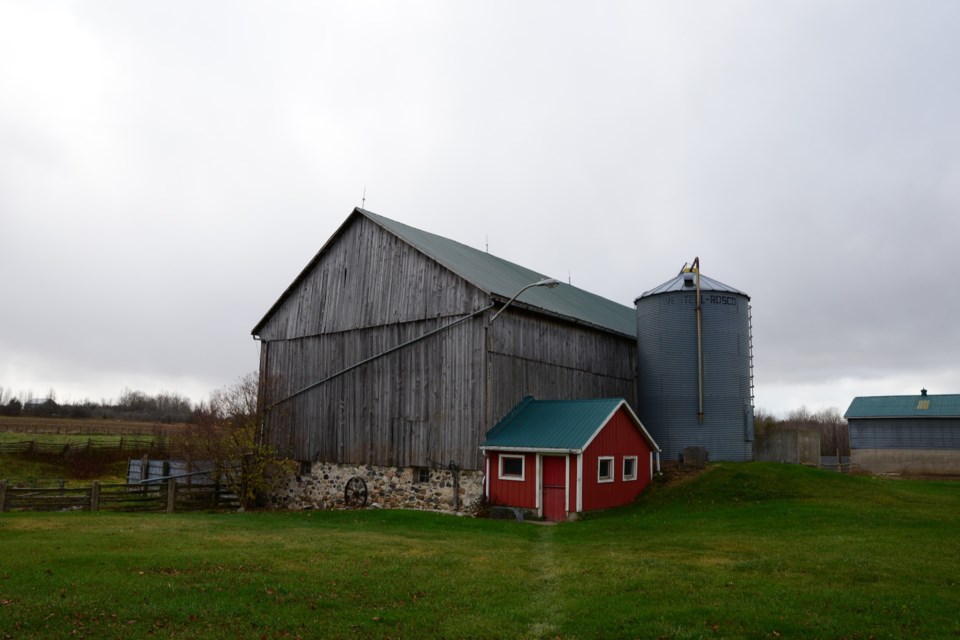Barns are not only unique pieces of architecture and craftsmanship. They also contribute to Ontario’s rural landscape.
The not-for-profit Ontario Barn Preservation invites barn owners to take part in Your Old Barn Study, a census created in partnership with the University of Guelph to help promote the identification, documentation and protection of barns across the province.
No matter the condition, Ontario Barn Preservation says it loves them all.
“I think barns are part of our history here in Ontario. And they are architecturally unique, typically made of wood beams and posts," says Ontario Barn Preservation director Randy Bagg.
"So there is an architectural importance as well as a historical importance as to when and why they were built by pioneers in the late 19th and early 20th centuries."
The mission, Bagg said, is to preserve barns in Ontario.
“And one way is with the implementation of this data base which includes characteristics of barns, their locations and who owns them,” Bagg said. “We also ask for photographs and historical stories. I think there’s a lot of information we can gather from all of this.”
Ontario Barn Preservation president Hugh Fraser partnered with Kimberley Martin, assistant professor of History at the University of Guelph.
“There is an experiential fourth-year course run by the history department at the university. About two years ago, a student began to help build this survey. I went back to university as a senior to do a history degree. I took the course, and that’s how I became involved,” Bagg explained.
He spent about a year and a half helping develop the survey.
“It was completed about a year ago, but we are still always tweaking it. Right now, what we really want to do, is populate the data base with barn owners,” Bagg said.
So far, there are about 20 barns included in the data base.
“I’m currently working on a marketing plan to try and get more barns in,” Bagg said.
“I think long term, we can look at the information in this data base, and work with the University of Guelph history department to analyze the data and perhaps publish some of it one day.”
Bagg has spent most of his life working in barns.
“For me, I grew up on a dairy farm. I am retired now, but I was a large animal veterinarian for 15 years. So, I visited barns, all kinds of barns,” Bagg said.
“I’ve always had an interest and an appreciation for them. So, I took the history course, stayed on and helped to further the develop of the survey with Hugh Fraser.”
Ontario Barn Preservation provides resources, advice, connections, events and services to help preserve barns.
And now, as the organization's director, Bagg said he hopes to continue this work.
“We haven’t started to analyze any of the information from the survey yet. We hope to see about 50 to 100 barns by spring. We hope that we can get more barn owners to add their information into the database,” he said.
Bagg believes the preservation and recording of barns is a vital part of Ontario's agricultural history.
“For any barn owners out there, the best way to take part is to visit the Ontario Barn Preservation website. A link will take them to the survey and then they can fill it out,” Bagg said.
Ontario Barn Preservation facilitates the sharing of information about barns and works with agricultural organizations, as well as with local, provincial, and federal government officials to help develop policies that promote barn preservation.
“If you drive around, there many barns just standing abandoned. I think there are some that are being repurposed, and not just being for livestock anymore. There are so many other purposes that barns can be used for in the future," Bagg said.
“It’s still to be determined what will come out of all of the information gathered, but I think if we can document as much as we can about barns, the more we will know about them.”



